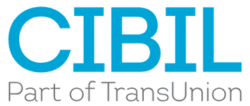A credit report and score is an extensive representation of your financial health. The data showcases your credit behaviour that helps banks, lenders, or credit institutions to take a call on your loan or credit card application.
Many factors decide the fate of a loan and credit card application, but a ‘settled status’ on any CIBIL (Credit Information Bureau India Limited) report marks the borrower as a defaulter.
Here’s what you can do to avoid this situation:
Don’t settle for a ‘Settlement’
For instance, Rahul’s credit card is approved in good faith. He maxes out the approved credit card limit. Slowly the rate of interest piles up and increases his outstanding dues. With a limited salary and lack of financial discipline, Rahul fails to clear his credit card bills.
Unable to recover the money from the borrower, banks, or lenders request the individual to pay a lesser amount and settle the outstanding dues. In this case, if Rahul chooses to settle the dues, the lender would report the account as settled.
The ‘Settled’ status will make Rahul a defaulter, and many credit institutions will shy away from providing him with any financial assistance in the future.
In some cases, the borrower approaches the bank to inform them about his/her incapability to repay the loan amount. The lender assesses the genuineness of the borrower’s condition and offers a settlement that is lower than the outstanding amount.
Here are some of the reasons that are accepted by the banks or lenders:
- Medical or health issues
- Loss of job or unemployment
- Accidents
Note: Banks usually write off loans 180-270 days after the payment date. The settlement can happen before and after the write-off.
The credit report is updated as settled if a customer accepts the settlement before the write-off. And the settlement after the write-off is called post-write-off settlement.
What’s the impact of settled status on your CIBIL score?
When the lender or bank offers a one-time settlement to write off the difference between what has been paid and what is yet to be paid, the settled status is informed to the credit bureau (CIBIL)
The bureau considers the settled status as a negative credit behaviour and the score can drop anywhere between 75-100 points.
A sharp drop in the credit score decreases the creditworthiness of the borrower. Banks and other lending institutions will consider the borrower risky and reject loan and credit card requests.
Note: The settled status on the credit card settlement stays on the CIBIL report for at least seven years. The ideal credit score is somewhere around 750 to 800, which reflects good credit behaviour and financial health.
How to improve CIBIL score after Settlement?
Often, borrowers assume the loan settlement as an opportunity to pay less. Instead, borrowers should always plan a repayment strategy and then apply for a loan or credit card.
But what if it’s too late?
- Convert ‘settled’ to ‘closed’: Communicate with the respective lender or bank and clear the outstanding amount in full. Once the dues are cleared banks will issue a NOC/NDC (No objections/No due certification). Raise a dispute on CIBIL’s website and change the status from settled to close within 30 days.
- Payment history:Banks are more interested to know about your repayment ability than spamming your timeline. Make an effort to make your payments within the stipulated time because good credit behaviour increases the CIBIL score.
- Maintaining a low credit utilisation: Living on a budget doesn’t mean you have to set a tent on the outskirts of the city. Prioritise and limit your credit card spends so that you can clear them easily. Don’t let Friyay’s fool you. Maintain a healthy budget and build good credit behaviour for the long run.
Building good financial health requires persistence. To prevent situations like settlement, always remember to check your credit score and report.
P.S. That iPhone can always wait… Think about it.







